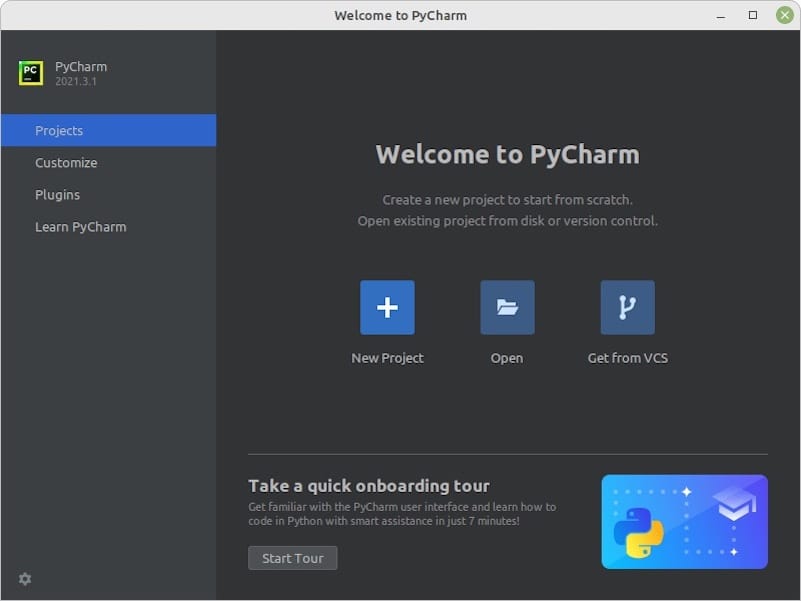How To Install PyCharm on AlmaLinux 9

Python has become one of the most popular programming languages in recent years, and PyCharm is a powerful Integrated Development Environment (IDE) that streamlines Python development. AlmaLinux 9, a fork of Red Hat Enterprise Linux (RHEL), has gained traction among developers for its stability and reliability. In this article, we will guide you through the process of installing PyCharm on AlmaLinux 9, enabling you to harness the full potential of this robust IDE.
Prerequisites
Before we dive into the installation process, ensure that your system meets the following requirements:
- AlmaLinux 9 installed on your machine
- A user account with root privileges or sudo access
- A fresh OS installation to minimize the risk of conflicts
It’s crucial to have a clean and updated system to ensure a smooth installation process.
Step 1: Update AlmaLinux System
To begin, it’s essential to update your AlmaLinux system to the latest available packages. This step ensures that you have access to the most recent software versions and security patches. Open a terminal and execute the following commands:
sudo dnf update -y && sudo dnf upgrade -yThe -y flag automatically answers “yes” to any prompts during the update process, streamlining the procedure.
Step 2: Install Snap Package Manager
Snap is a universal package manager that simplifies the installation of applications across various Linux distributions. To install PyCharm using Snap, we first need to set up Snap on our AlmaLinux system. Follow these steps:
- Install the Snap package manager by running:
sudo dnf install snapd- Enable and start the Snap daemon:
sudo systemctl enable --now snapd.socket- Create a symbolic link to the Snap directory:
sudo ln -s /var/lib/snapd/snap /snap- Verify the Snap installation by checking its version:
snap --versionWith Snap successfully installed, we can now proceed to install PyCharm.
Step 3: Install PyCharm Using Snap
PyCharm is available in three editions: Community, Professional, and Educational. The Community edition is free and open-source, while the Professional and Educational editions offer additional features and require a paid subscription. Choose the edition that best suits your needs and run the corresponding command:
- Community Edition:
sudo snap install pycharm-community --classic- Professional Edition:
sudo snap install pycharm-professional --classic- Educational Edition:
sudo snap install pycharm-educational --classicThe --classic flag grants PyCharm access to the host system’s resources, ensuring seamless integration and functionality.
Alternative Method: Install PyCharm Using Tarball
If you prefer not to use the Snap package manager, you can install PyCharm using a tarball. This method involves manually downloading and extracting the PyCharm package from the official JetBrains website. Follow these steps:
- Visit the PyCharm download page.
- Select the desired edition and download the tarball for Linux.
- Open a terminal and navigate to the directory where the tarball was downloaded.
- Extract the tarball using the following command:
tar -xvzf pycharm.tar.gz- Change to the extracted PyCharm directory:
cd pycharm-community/bin- Make the PyCharm startup script executable:
chmod u+x pycharm.sh- Launch PyCharm:
./pycharm.shWhile the tarball method provides more control over the installation process, using Snap offers a more streamlined and automated approach.
Step 4: Launching PyCharm
Once PyCharm is installed, you can launch it from the Application Manager or by running the following command in the terminal:
pycharmWhen launching PyCharm for the first time, you will be prompted to complete the initial setup. Follow the on-screen instructions to configure your preferences, such as UI theme, plugins, and project settings.

Troubleshooting Common Issues
If you encounter any issues during the installation process, consider the following troubleshooting tips:
- Ensure that your AlmaLinux system is up to date by running the update and upgrade commands mentioned in Step 1.
- Double-check that you have the necessary user privileges (root or sudo) to install packages and modify system settings.
- If you encounter dependency errors, try running
sudo dnf install -fto resolve any missing dependencies. - If PyCharm fails to start, verify that you have the required Java Development Kit (JDK) installed. PyCharm requires JDK 11 or later.
Congratulations! You have successfully installed PyCharm. Thanks for using this tutorial for installing PyCharm IDE (Integrated Development Environments) on your AlmaLinux 9 system. For additional help or useful information, we recommend you check the official PyCharm website.